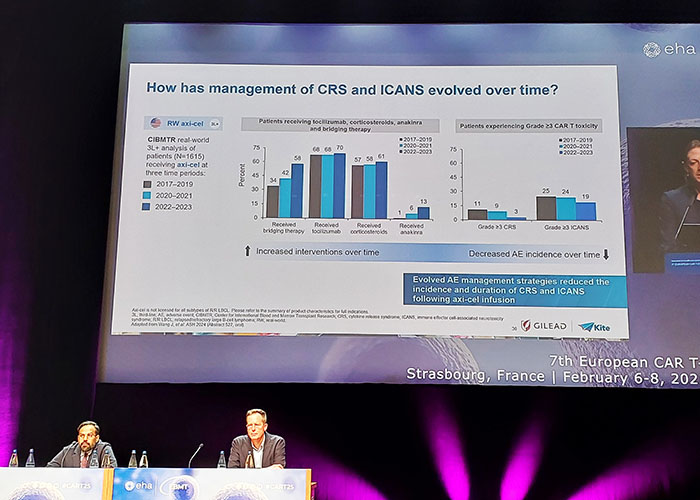In the context of CAR-T (Chimeric Antigen Receptor T-cell) therapy, CRS stands for Cytokine Release Syndrome, a potentially severe and life-threatening side effect. CRS occurs due to the rapid activation and proliferation of CAR-T cells after they engage with their target antigens on cancer cells. This process triggers an excessive release of inflammatory cytokines, leading to a systemic immune response.
Key Features of CRS
- Symptoms: CRS typically begins with fever and can escalate to include hypotension (low blood pressure), hypoxia (low oxygen levels), tachycardia (rapid heart rate), and capillary leak syndrome. Severe cases may lead to multi-organ dysfunction or failure.
- Onset: Symptoms usually appear within 1 to 14 days after CAR-T cell infusion, peaking during the first week.
- Cytokines Involved: Elevated levels of cytokines such as IL-6, IL-1, interferon-γ, and tumor necrosis factor are hallmarks of CRS.
Grading of CRS
CRS severity is graded based on symptoms like fever, hypotension, and hypoxia:
- Grade 1: Mild symptoms requiring only supportive care.
- Grade 2: Moderate symptoms requiring intravenous fluids or low-flow oxygen.
- Grade 3: Severe symptoms requiring vasopressors or high-flow oxygen.
- Grade 4: Life-threatening symptoms requiring mechanical ventilation or multiple vasopressors.
Management
Treatment focuses on controlling inflammation and supporting organ function:
- Tocilizumab: An IL-6 receptor antagonist that is the first-line treatment for CRS. It helps reduce cytokine levels and inflammation.
- Corticosteroids: Used if symptoms persist or worsen despite tocilizumab, as they suppress the immune response without significantly increasing relapse risk.
- Supportive Care: Includes oxygen therapy, fluid resuscitation, and intensive care for severe cases.
CRS is the most common toxicity associated with CAR-T therapy, but early recognition and prompt management can significantly improve outcomes.

Photo: European CAR-T conference 2025. Strasbourg, France.
Publication date: April 2025
Sources:
eviq.org.au
pubmed.ncbi.nlm.nih.gov
theattcnetwork.co.uk
ashpublications.org
nature.com
ascopubs.org
ashpublications.org
hematologyadvisor.com










